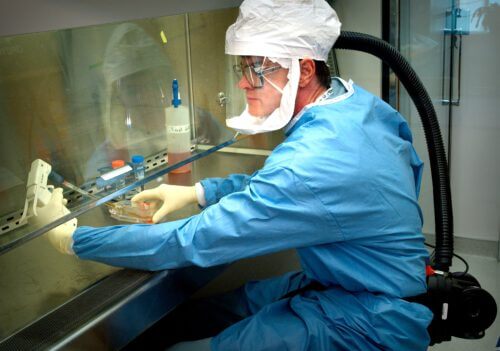This is according to a study by a group of researchers from the Institute for Biological Research in Ness Ziona, who are monitoring the drug as an inhibitor of virus replication, and have already proven this on previous viruses

The article was published on the Hedaan website on 24/5/2020. Two days before everyone else.
A drug given to Gaucher patients blocks the replication of the corona virus in the cell. This is according to a study by a group of researchers from the Institute for Biological Research in Ness Ziona led by Dr. Einat Bleiberg Wittner and Dr. Tomer Israeli, who are monitoring the drug as an inhibitor of virus replication, and have already proven this on previous viruses.
"The need for antiviral drugs is real and relevant," the researchers write in the introduction to an article published on BioArxive, a site that gathers medical articles before their official publication, in order to update the scientific community.
Broad-spectrum antivirals have a particular advantage when dealing with rapid outbreaks of disease, such as the current COVID-19 pandemic. Viruses are completely dependent on the internal mechanisms of cells. They must cross cell membranes during their life cycle, so they create a dependency on processes involving membrane dynamics. Thus, in this study we tested whether the synthesis of glycosphingolipids, biologically active components of cell membranes, can serve as an antiviral therapeutic target.
The drug Sardarga is used today as a second-line drug for Gaucher patients, a metabolic disease common in Ashkenazi Jews. In previous studies by the institute, it was discovered that the same properties that help it relieve Gaucher's disease also make it an antiviral drug, and it has been shown to inhibit several known viruses and specifically the new corona virus, by inhibiting its replication. It turns out that the viruses, including the corona virus, use the same cellular pathway that is damaged in Gaucher's disease. There are many drugs that focus on the same pathway, and since the viruses use a pathway similar to the one that is defective in the genetic disease, the idea was to take the anti-Gauche drug. The researchers were surprised to find that it affects viruses from four different families. The researchers tested the drug on cell culture and found that it inhibits the infection of corona in these cells.
"We examined the antiviral effect of two inhibitors of the GlucosylCeramide Synthase (GCS) enzyme: one component found in the drug Sardalga, approved by the FDA and another component - the equivalent of - venglustat, a drug that is in the third phase of clinical trials. We found that the two GCS inhibitors inhibit the replication of four different RNA viruses that differ in their target organs and the route of infection: the Sindbis virus, the West Nile virus, the influenza virus and the new corona virus (SARS-CoV-2). We discovered that the GCS inhibitors significantly increase the survival rates of Mice infected with Sindbis. Our data show that GCS inhibitors can be used as a broad-spectrum antiviral therapy and should be further tested in a preclinical and clinical trial. Derivatives of the specific compounds tested have already been clinically studied by virtue of being the active ingredients in registered drugs, meaning that they can be approved for use quickly. With the current COVID-19 pandemic, this may be particularly relevant to SARS-CoV-2 infection.
While the Sindbis virus has been tested in both cell cultures and animals, the effect of the drug on the corona virus has only been tested in cell cultures and found to be effective, and it is now necessary to proceed to the next stages of the research. However, since it is an approved drug whose side effects are known, and which has passed safety tests, this may shorten the process for a clinical trial of testing its effectiveness in blocking the corona virus in humans.
More of the topic in Hayadan:
- Frequent hand washing, disinfecting surfaces and avoiding physical contact reduce the risk of contracting the corona like masks and gloves
- Will Moderna's messenger RNA bring the news of the corona vaccine?
- Genomic research from the University of Tel Aviv: about 70% of the infection chains of the corona originate from the USA and the rest from Europe
